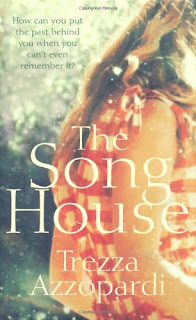Rating: 2/5
Review:
Not for me
This is a brilliant idea for a novel and the author shows
real insight and intelligence in dealing with a complex, highly emotional
subject but in the end I found that the excessive "style" completely drowned
out the quality of the insight. Ludicrously
long sentences and the persistent and sometimes simply incorrect use of obscure
vocabulary meant that I was forever aware of how show-offy the writing was,
which too often prevented me getting involved with what the writing was about.
Maylis de Kerangal examines the death of a young man and the
subsequent transplantation of his heart by telling the story over a 24-hour
period of the various people involved.
She is very keen to give us rounded portraits of real characters, which
is commendable and which she does by giving us some of the minutiae of their
everyday lives. However, it's terribly overdone;
for example, as the story of the death and subsequent transplant begins she
introduces us to a nurse thus:
"…if he had looked more closely he would have seen that
there was something a little odd about her, eyes clear but marks on her neck,
swollen lips, knots in her hair, bruises on her knees, he might wonder where
this floating smile came from, the Mona Lisa smile that doesn't leave even when
she leans over patients to clean their eyes and mouths, inserts breathing
tubes, checks vital signs, administers treatments, and maybe if he did he would
be able to guess that she had seen her lover again last night, that he had
phoned her after weeks of silence, the dog, and that she showed up on an empty
stomach, beauteous, decorated like a reliquary, lids smoky, hair shining, breasts
warm…"
And so on and so on.
There's no trace of a full stop for another entire page and to me it all
seemed excessive and, just as they're preparing to treat a critically injured
young man, very out of place. That
gargantuan sentence also eventually ends up telling us that as a result of all
this she is "someone he would be able to rely on," which seems a very
questionable and peculiarly French idea of a guarantee of reliability to me. (Mind you, de Kerangal does give this nurse
the sublime name of Cordelia Owl, for which I can forgive her a great deal.) Lots of characters get this sort of
treatment, and it really does get a bit much.
As another example, the moment when the doctor breaks the
news to the mother of her son's death could have been excellent and full of
genuine human insight and compassion, but again was spoiled by overblown
language and nonsense like the mother wishing for an "acidulous happy
ending," and a little later going past a waiting room containing magazines
with "mature women smiling from the covers, with healthy teeth, shining
hair, toned perineums..." I was so startled that had to check that
perineum meant what I thought it meant - which seems to be more than the author
or translator did. It does, and frankly, that really isn't the sort of
magazine cover I'd expect to find in a hospital waiting room.
Somewhere under all this I suspect that there is an
evocative and compassionate portrait of a mind struggling with the shock of
sudden grief, but I only got an occasional fleeting glimpse of it among all the
I'm-so-clever writing.
I also found the style intruding in plenty of other places,
like the surgeon who loves the pattern of his shifts because of (among a long, florid
list of other things) "…their alveolar intensity, their specific
temporality…" Er…what? And "alveolar"? Come on!
Neither the phonetic nor the anatomical meaning makes any sense here,
and this is far from the only example of adjectives and adverbs thrown in for
no discernible reason which are recondite, arcane and abstruse. (See? We can
all do it, you know.) Early on, two
doctors speak to each other in medical shorthand which de Kerang describes as a
language which (among a long, florid list of other things) "banishes the
verbose as a waste of time." It's a
phrase of which I was forcibly reminded more than once while reading this book,
I can tell you.
At one point, a doctor enters and walks across the lobby of
the hospital, which is described like this: "…Thomas knows this lobby with
its oceanic dimensions by heart, this emptiness that he must cleave in one
shot, drawing a diagonal across the space to reach the stairway…" He's just arriving at the front door and
walking to the stairs, for heaven's sake!
With absolutely everything presented with this pitch of ridiculously over-written
intensity, the scenes and episodes which should have been really affecting lost
almost all their power.
I'm sorry to go on so much (although this review is probably
still shorter than some of de Kerangal's sentences) and to sound so critical,
but this should have been a really fine novel, and for me it was destroyed by
self-conscious literary tricksiness. (And if I'd read the Translator's Note
first, I might well not have bothered at all.)
I think this is a terrible shame; I was very disappointed and in some
places made very cross by this book. I
can't recommend it.















